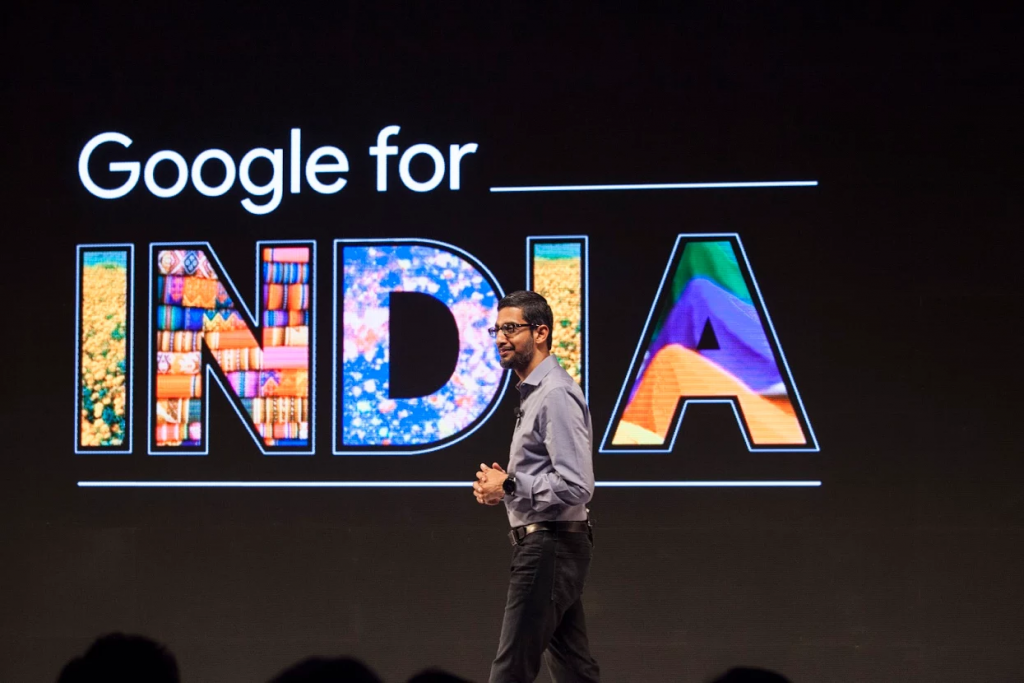
This is a response to Mariana Martinez Rubio’s Blog post “Girls Bring Happiness at Home, Can Google Save them?”
In 2013, according to the New York Times, there were 37 million more men than women in India (Trivedi, 2013). Google and other technology giants have been assigned with the job of eliminating gender inequality, reflecting the enormous power yielded by Google. However, this bring forth the question: “How much power should one company hold?”
Google’s presence in India is big and it is growing. According to the blog, it would be catastrophic for India if Google ceased operations. Consequently, the action of Google deciding to remain in operation in India by aiding the government in combatting gender imbalance proves to a certain extent the stakeholder theory. India evidently has a stake in Google as the company creates a large tax revenue, as well as provides other social and economic benefits such as employment. Furthermore, the Indian government proposes Google to operate in a way in which would benefit society, for example banning advertisement and keywords relating to sex determination. Despite the fact that Google is operating in what appears to be a socially minded method, a problem that is presented is the size of Google. Google’s size and impact in India are very large, to the point where the government requires its aid. While currently, Google is not using its size in an unethical way, in the future as the company continues to grow, a threat caused by unethical business practice may appear and the impact would be large.
in India by aiding the government in combatting gender imbalance proves to a certain extent the stakeholder theory. India evidently has a stake in Google as the company creates a large tax revenue, as well as provides other social and economic benefits such as employment. Furthermore, the Indian government proposes Google to operate in a way in which would benefit society, for example banning advertisement and keywords relating to sex determination. Despite the fact that Google is operating in what appears to be a socially minded method, a problem that is presented is the size of Google. Google’s size and impact in India are very large, to the point where the government requires its aid. While currently, Google is not using its size in an unethical way, in the future as the company continues to grow, a threat caused by unethical business practice may appear and the impact would be large.
Ms. Rubio said that Google has a unique presence in India by innovating in ways that allow Google to expand their brand name and services while having a positive socio-economic impact. This reflects very well Google’s vision statement which is: “To organize all of the data in the world and make it accessible for everyone in a useful way”. In the blog it is often mentioned the positive projects that Google does through YouTube Go and Google News; however, I believe that an underlining layer behind those actions is revenue and expansion of the company. According to the positioning theory popularized by Jack Trout and Al Ries, through this technique Google is able to position their brand in the minds of consumers and create an association of positive impact; enforcing their unofficial motto of “Avoid being evil”. Through these actions Google is able to attract a potential market of approximately one billion people, increasing significantly the firm’s power and data which it controls.

Source: Goh, E. (2012, March 27). Why your mission statement matters. Retrieved from idealog: http://idealog.co.nz/media/images/blog/2012/03/google-mission-statement.jpg
In my opinion one firm potentially possessing all data in the world and having the ability to fix problems which governments cannot is an issue because the company can no longer be regulated. I believe that a company should hold enough power, but still be able to be monitored.
Word Count: 450
Think; when you save something on Google Drive you are helping Google take a step closer to its vision statement.
Works Cited
Trivedi, A. (2013, January 16). India’s Man Problem. Retrieved from The New York Times: http://india.blogs.nytimes.com/2013/01/16/indias-man-problem/?_r=0
Goh, E. (2012, March 27). Why your mission statement matters. Retrieved from idealog: http://idealog.co.nz/media/images/blog/2012/03/google-mission-statement.jpg